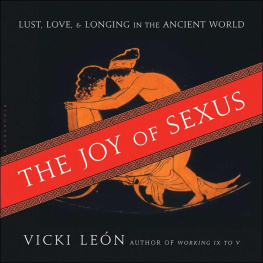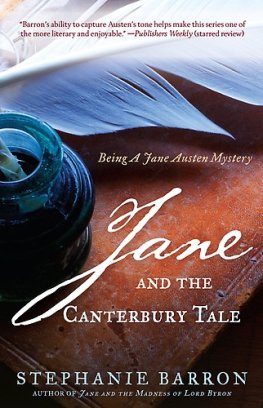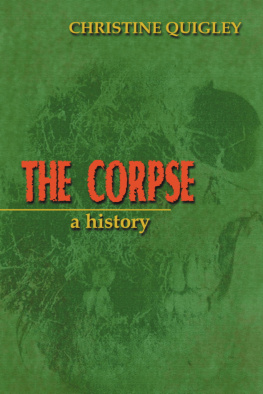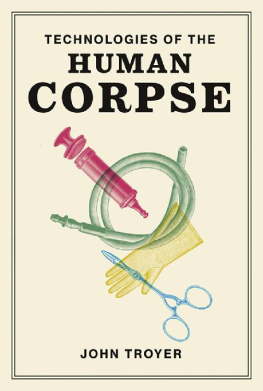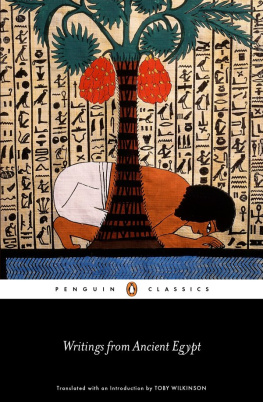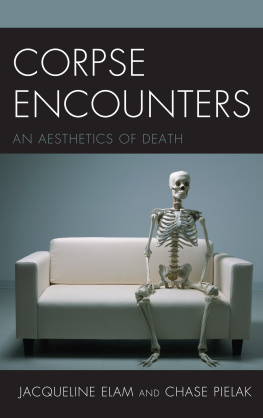Praise forHow to Mellify a Corpse
Vicki Len deftly combines modern research with ancient lore to lift the lid on the classical worlds weird and wonderful, ranging from solar fountains and surround-sound to lethal lipstick. Now I know how to predict the future while feeding chickens. Marvelous stuff!
RUTH DOWNIE, author of Persona Non Grata: A Novel of the Roman Empire
Like a literary time machine, Vicki Lens book plunks readers into the sandals of antiquitys greatest sages, soldiers, and kings. A captivating read from start to finish.
ALAN HIRSHFELD, astrophysicist and author of Eureka Man: The Life and Legacy of Archimedes
Vicki Lens How to Mellify a Corpse is a scintillating compendium of ancient beliefs and practices, from magical thinking to proto-scientific inklings.
ADRIENNE MAYOR, research scholar of classics and history of science at Stanford University and author of The First Fossil Hunters and Greek Fire, Poison Arrows, and Scorpion Bombs
Suffering from the evil eye? Thinking of raising a pet eel? Look no further. With wit and insight, author Vicki Len brings the wonders of the ancient world to light. From stench wars to funeral rites, Len takes us on a fantastic journey to the origins of ideas and ideologies. A rollicking reference.
STEPHANIE LILE, museum educator and author of History Lab to Go!
Len returns with another volume of fascinating miscellany, this time about the thought-world of the Greeks and Romans. Her lively anecdotes range from Stoics to stargazers, from ceremonial scapegoats to (mostly pseudo)scientists. In a world still poised between superstition and reason, Len shows us that the examples of the ancients are more pertinent than you might think.
STEVEN SAYLOR, author of Empire: The Novel of Imperial Rome
Vicki Len has done it again, turning a litany of ancient names into warts-and-all portraits of real philosophers, early scientists, and architects. With acerbic wit, she makes accessible the complex teachings of our icons from the deep past.
DR. JACQUELINE WALDREN, Institute of Social and Cultural Anthropology and International Gender Studies at University of Oxford
The entries titles and subtitles of the books entries are factual and often humorous. Len is good at engineering hilarious incongruity with fractured idiomsMeasurements and money: The whole nine cubits, for instance. My favorite entries are Acoustics: The first surround sound and Timekeeping: Calendar wars because they made me curious about subjects new to me. Highly entertaining and intellectually stimulating.
CAROLINE HATTON, Ph.D., analytical chemist and author of The Night Olympic Team
Vicki Lens penetrating account of the Greco-Roman world ranges from forward-looking science, technology, and philosophy to mind-boggling superstition. All of it brought to life through a huge cast of real people, from the renowned to the undeservedly obscure, and told with style, humor, and energy. Its a perfect combination: the ancient world seen through perceptive modern eyes.
STEPHEN MOORBATH, professor emeritus at University of Oxford
This conversational book about long-ago people, places, and processes is organized geographically rather than thematically, with alternating emphasis to keep us engaged. Given my background, I was especially interested in the entries on geography and geology. A picture may be worth a thousand words, but Vickis book delivers a thousand years of fascinating anecdotes.
JERRY CLARK, college geography teacher and NASA space researcher, retired
A thought-provoking read. The facts are fun and informative; exactly what Latin teachers (and students) love to share. Furthermore, Vicki plays with words so eloquently and lightly that she draws in readers. The connections she makes to the ancient world through science will keep students delving deeper. I will be adding elements of her book to my class as a spice to keep them savoring the classics.
BRIAN GEFFRE, high school Latin and English teacher and sponsor of Shanley Junior Classical League
This book is dedicated to
Kieran Conroy, whose eager young curiosity thrills me,
Sandee Ogren, whose wisdom, wit, and grit inspires me,
and Stephen Moorbath, whose talent for science
and tomfoolery slays me
CONTENTS
SECTION I
Athens & Attica
SECTION II
Greece & the Greek Islands
SECTION III
Asia Minor & the Middle East
SECTION IV
Rome & its Provinces
SECTION V
Italy & Sicily
SECTION VI
North Africa & Mesopotamia
Youre beginning a field trip to a long-ago world filled with science, superstition, and the folks who believed in both. Because its ground rules were quite different from our own, heres a quick tutorial.
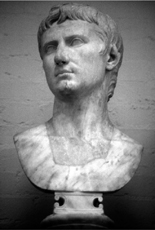
My usernamewhich one? I have twenty-three.
Names. Ancient Greeks went by one name plus birthplace, as in Diogenes of Sinope. In this book, individuals are identified by their best known names (and spellings): Cicero, Marc Antony, Cleopatra, Archimedes, Herodotus. Elite Romans (and even some freedmen) had three-part names but Ive spared you most of them. The glaring exception? Romes first imperial ruler. Born Gaius Octavius, the grand-nephew of Julius Caesar, he later became Caesars adoptive son. During his forty-one-year run, he accumulated a lengthy string of names and titles. In the interests of author sanity, I refer to him as Octavian before he became top dog, and (Emperor) Octavian Augustus after 27 B.C.
Places. Although travel was difficult, Greeks and Romans logged an astonishing number of miles: job transfers, education abroad, marriage migrations. At times their zigs and zags meant rotten luck: captured by pirates, exiled for political reasons, or fleeing war. Since this book goes back as far as 700 B.C. and includes events as late as A.D. 300, the maps with each section will help you keep track of these Greco-Roman cultures.
The term Greco-Roman is a misleading convenience. Early on, the Greeks colonized, planting their city-states in Italy, North Africa, Spain, France, and around the Black Sea. Greek-speaking city-states also flourished at the eastern end of the Mediterannean, a region everyone called Asia Minor back then. Despite the name, each polis or city-state was more than an urban center. Some city-states, Sparta for one, had huge amounts of land; others had only a crumb on which to raise crops. The most populous polis was Athens, which included the countryside of Attica around it.
Rome arose as a small city. After it devoured the local Etruscans, Rome got a taste for expansion. By 146 B.C., it had freed all the Greeks by swallowing them. Two decades after Julius Caesar was assassinated and his heir Octavian took the reins of power, the imperial centuries began, with the city of Rome as its capital. Lands conquered by the Romans paid tribute and became known as provinces.
Whether founded by Greeks or established by Romans, the fortunes of individual cities rose and fell. Some had real staying power, especially Athens and its cultural rival, Syracuse of Sicily; and Rome and its economic rival, Antioch of Syria. Pergamum, Ephesus, and Alexandria the inventive also enjoyed many centuries of influence. Others from Corinth to Carthage to Tyre had briefer yet substantial lifespans.
Next page

